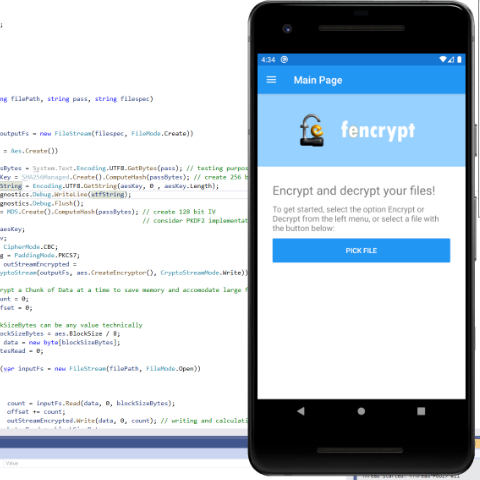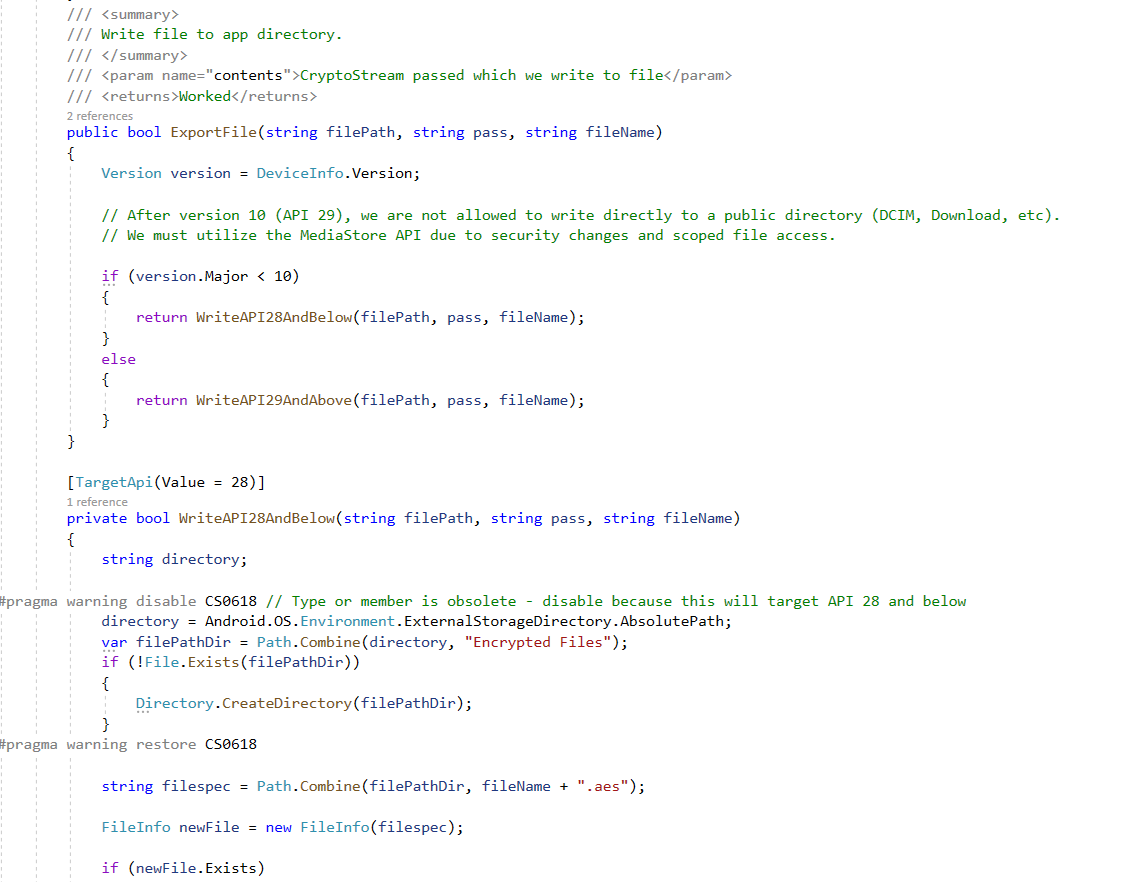

Made with Xamarin and C#

This is an ongoing project to explore the feasibility and difficulty in creating a file encryption application that is performant and cross-platform. It allows the user to encrypt multiple file types using their own password, which is later passed through a SHA256 and MD5 hash function for the AES encryption password and initialization vector.

Initially, it was designed to be only for the Android platform, but the code used is currently cross-platform compatible and capable of deployment on iOS and other platforms as well.
One of the most pertinent issues I had to overcome was preserving I/O and overall performance when encrypting larger files - Outside of ensuring consistent performance with asynchronous execution and tasks, one of the most common ways to encrypt a file is to pass it all in right away to the encryption function and write it immediately to a final file. Unfortunately, while this method is simple to implement, it is extremely inefficient for large files and can bring a mobile device to a grinding halt. The ingenious solution to this is instead to utilize a "chunk" system - create an empty final file and then open a filestream to it, writing encrypted data in numerous blocks of data! Not only is this more efficient in memory usage, but it also ensures the operating system has resources for background tasks, improving device performance hugely.
Another issue that I had to overcome in this project was making it be cross-compatible across both recent and new Android API levels - with the introduction of Android API 29 (Android 10), many changes were brought about to file storage, one of the main ones being the requirement for "scoped storage" - Android apps can no longer access public file directories directly unless they are folders such as DCIM, Download, etc. To work around this requirement, I created two separate file writing interface functions which ensure full compatability even as far back as API level 21 (Android 5.0)! Writing to API 28 and below is still standard game, but API 29 and above will utilize the new scoped storage requirements and comply with saving files to the app's respective sandbox in local storage.

This project is still a constant work-in-progress and I hope to add many new features, such as a better UI - it is currently available at this this Github link.